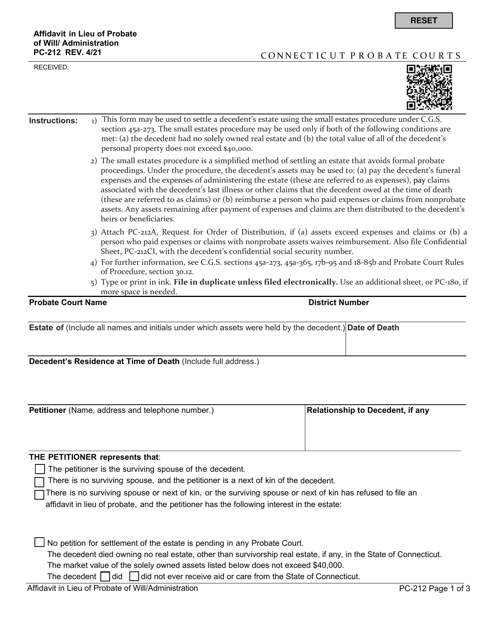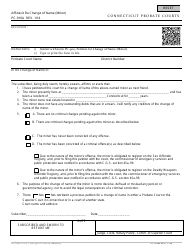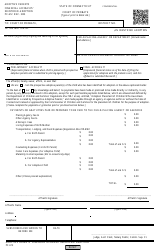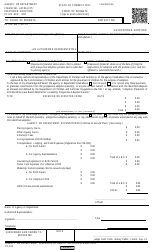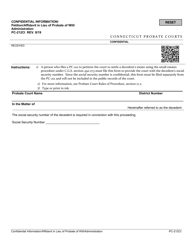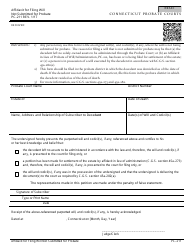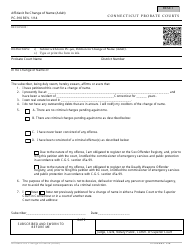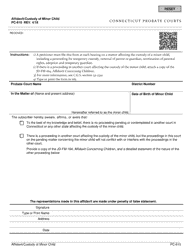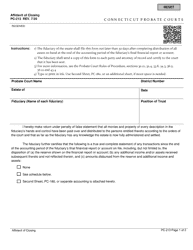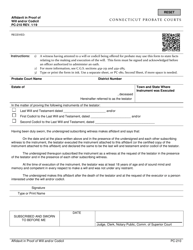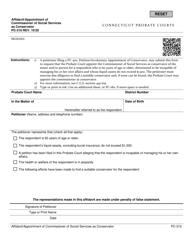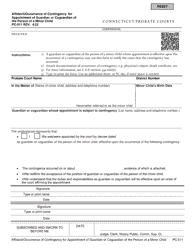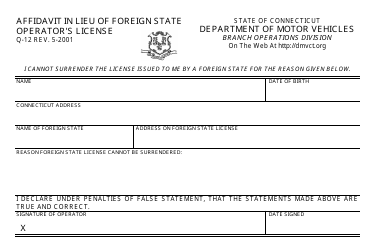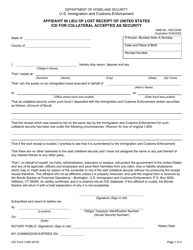This version of the form is not currently in use and is provided for reference only. Download this version of
Form PC-212
for the current year.
Form PC-212 Affidavit in Lieu of Probate of Will / Administration - Connecticut
What Is Form PC-212?
This is a legal form that was released by the Connecticut Probate Court - a government authority operating within Connecticut. As of today, no separate filing guidelines for the form are provided by the issuing department.
FAQ
Q: What is a PC-212 Affidavit?
A: The PC-212 Affidavit is a legal document used in Connecticut as an alternative to probate or administration of a will.
Q: When is a PC-212 Affidavit used?
A: The PC-212 Affidavit is used when the value of the deceased person's real and personal property is under a certain threshold (currently $40,000 in Connecticut) and there is no real estate in the estate.
Q: Who can file a PC-212 Affidavit?
A: The surviving spouse or domestic partner, or any heir-at-law or beneficiary named in the will, can file a PC-212 Affidavit.
Q: What information is required in a PC-212 Affidavit?
A: The PC-212 Affidavit requires information about the deceased person, their assets, debts, and beneficiaries. It may also require a notarized signature.
Q: What is the purpose of a PC-212 Affidavit?
A: The purpose of a PC-212 Affidavit is to simplify the process of transferring ownership of the deceased person's assets to the rightful beneficiaries without going through probate court.
Q: Is a PC-212 Affidavit legally binding?
A: Yes, a PC-212 Affidavit is legally binding once it is properly completed, signed, and notarized.
Q: Are there any limitations or restrictions on using a PC-212 Affidavit?
A: Yes, there are limitations on using a PC-212 Affidavit, such as the value of the estate and the absence of real estate. It is recommended to consult with an attorney to determine if a PC-212 Affidavit is appropriate in your situation.
Form Details:
- Released on April 1, 2021;
- The latest edition provided by the Connecticut Probate Court;
- Easy to use and ready to print;
- Quick to customize;
- Compatible with most PDF-viewing applications;
- Fill out the form in our online filing application.
Download a fillable version of Form PC-212 by clicking the link below or browse more documents and templates provided by the Connecticut Probate Court.
